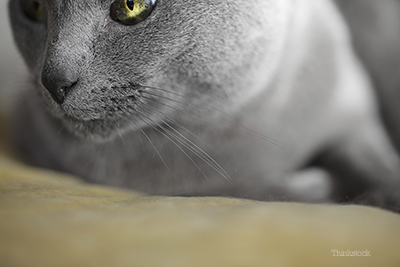
Some heart diseases are “peracute” or sudden onset. There may be no warning signs or pre-existing symptoms and if your cat has not had a thorough physical examination, sudden onset heart disease can be quite a shock. While we have all heard of sudden death from heart disease in people, it is not commonly known that animals can have sudden heart problems that can also lead to death.
What causes sudden heart problems in cats?
The most common causes of sudden death in cats are heart disease and associated conditions.
Feline cardiomyopathy or “heart muscle disease” and feline heartworm disease are the most common causes of sudden death in outwardly healthy cats. Both of these conditions frequently give no warning. Death can occur as a result of emboli or blood clots as well as sudden and severe rhythm abnormalities.
I have personally known and treated cats that died unexpectedly from heart disease. One patient was placed in her carrier at home acting completely normal only to pass away on the 15-minute trip to my office for a routine procedure. Sudden and unexpected death of a pet is heartbreaking and some people may blame themselves. “Was there something I could have done?”
How can I protect my cat from sudden heart failure?
Unfortunately, little is known about feline heart disease and sudden death. The only steps we can take as owners is to have our cat regularly examined — even then some cats may appear completely normal. In some breeds genetic testing may help develop a preventive plan, but remember there is no assurance that prevention will work.
The one contributing condition we can largely prevent is heartworm infection. Because as few as two or three worms in the pulmonary vessels can lead to sudden death, be sure that your cats are on year-round monthly heartworm preventive. I have had normal patients who developed sudden heart failure associated with undiagnosed heartworm infection. (Unfortunately heartworm testing is much more challenging in cats than in dogs and relatively few cats are on heartworm preventive.)
Heartworm infection symptoms can range from coughing to sudden death
Losing a pet is never easy and it is particularly difficult if unexpected. The important thing is that we do what we can. Ask your veterinarian what is within your control and take reassurance in the knowledge that you have done your best.
Some questions to ask your veterinarian:
Q: My cat died suddenly of cardiac disease. What could I have done to prevent this?
Q: My cat was recently tested for heartworms and was negative but she has developed a severe cough. Could it be from heartworms?
If you have any questions or concerns, you should always visit or call your veterinarian -- they are your best resource to ensure the health and well-being of your pets.
